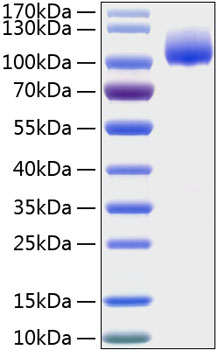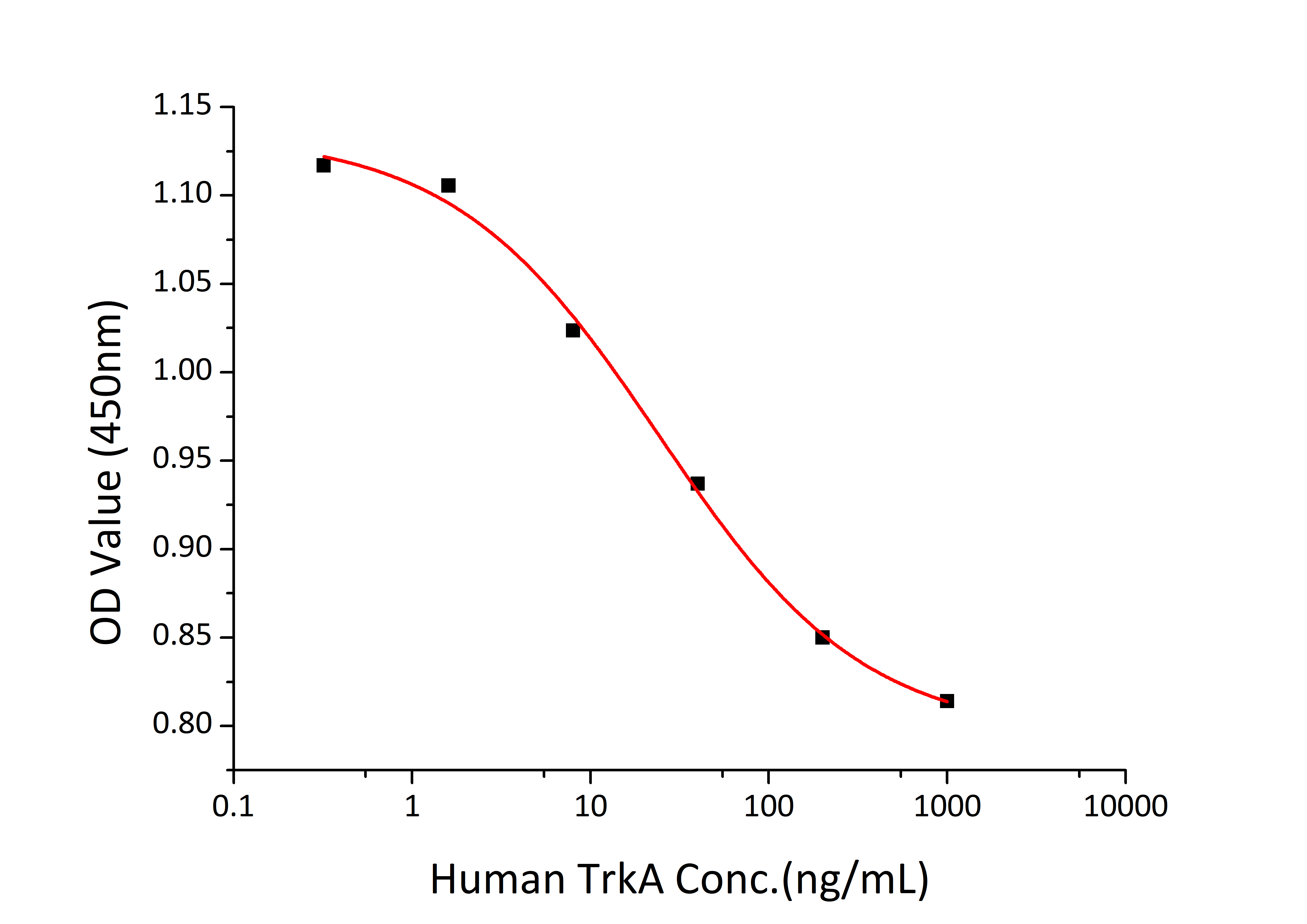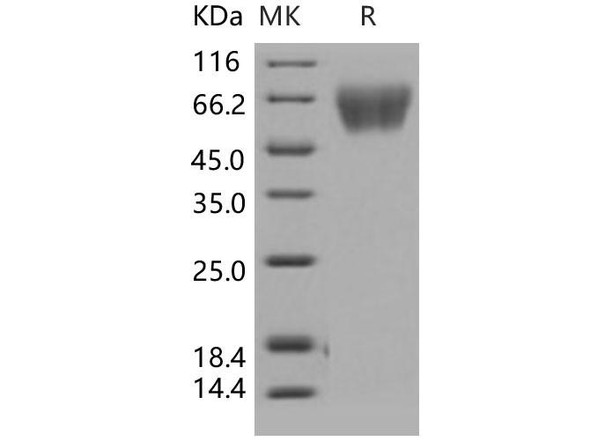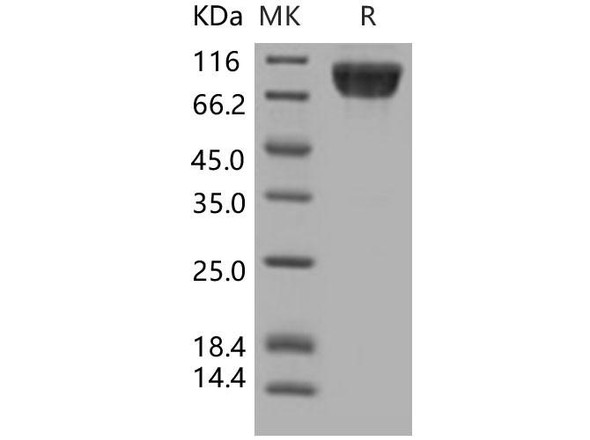Description
Recombinant Human Trk-A/NTRK1 Protein
The Recombinant Human Trk-A/NTRK1 Protein is a biologically active recombinant protein that plays a significant role in various cellular processes and signaling pathways in human biology. This protein is widely employed in immunological research, cell biology studies, protein-protein interaction analyses, and therapeutic development, providing researchers with a reliable tool for investigating Trk-A/NTRK1 function and its implications in health and disease.
This product (SKU: RPCB0174) is produced using HEK293 cells and features a C-hFc&His tag for convenient detection and purification. The protein exhibits a calculated molecular weight of 68.30 kDa with an observed molecular weight of 110-120 kDa under denaturing conditions, achieving ≥ 95 % as determined by SDS-PAGE.. Functional bioactivity has been validated through rigorous quality control assays, confirming its suitability for demanding research applications.
Key Features
| High Purity by Affinity Chromatography | |
| Mammalian & Bacterial Expression Systems | |
| High lot-to-lot consistency via strict QC |
| Product Name: | Recombinant Human Trk-A/NTRK1 Protein |
| SKU: | RPCB0174 |
| Size: | 10 μg , 20 μg , 50 μg , 100 μg |
| Reactivity: | Human |
| Synonyms: | MTC, TRK, TRK1, TRKA, Trk-A, p140-TrkA, NTRK1, TRK, TRK1, TRKA, Trk-A, p140-TrkA |
| Tag: | C-hFc&His |
| Expression Host: | HEK293 cells |
| Calculated MW: | 68.30 kDa |
| Observed MW: | 110-120 kDa |
| Gene ID: | 4914 |
| Protein Description: | High quality, high purity and low endotoxin recombinant Recombinant Human Trk-A/NTRK1 Protein (RPCB0174), tested reactivity in HEK293 cells and has been validated in SDS-PAGE.100% guaranteed. |
| Endotoxin: | < 0.1 EU/μg of the protein by LAL method. |
| Purity: | ≥ 95 % as determined by SDS-PAGE. |
| Formulation: | Lyophilized from a 0.22 μm filtered solution of PBS, pH 7.4.Contact us for customized product form or formulation. |
| Bio-Activity: | Measured by its ability to inhibit NGF-induced proliferation of TF-1 human erythroleukemic cells. The ED 50 for this effect is typically 12-48 ng/mL in the presence of 10 ng/mL of recombinant human NGF. |
| Reconstitution: | Centrifuge the vial before opening. Reconstitute to a concentration of 0.1-0.5 mg/mL in sterile distilled water. Avoid vortex or vigorously pipetting the protein. For long term storage, it is recommended to add a carrier protein or stablizer (e.g. 0.1% BSA, 5% HSA, 10% FBS or 5% Trehalose), and aliquot the reconstituted protein solution to minimize free-thaw cycles. |
| Storage: | Store at -20℃.Store the lyophilized protein at -20℃ to -80 ℃ up to 1 year from the date of receipt. After reconstitution, the protein solution is stable at -20℃ for 3 months, at 2-8℃ for up to 1 week. |
This protein is a member of the neurotrophic tyrosine kinase receptor (NTKR) family. This kinase is a membrane-bound receptor that, upon neurotrophin binding, phosphorylates itself and members of the MAPK pathway. The presence of this kinase leads to cell differentiation and may play a role in specifying sensory neuron subtypes. Mutations in this gene have been associated with congenital insensitivity to pain, anhidrosis, self-mutilating behavior, mental retardation and cancer. Alternate transcriptional splice variants of this gene have been found, but only three have been characterized to date.








